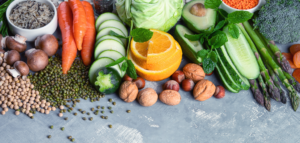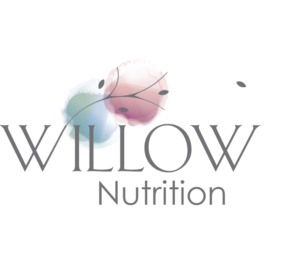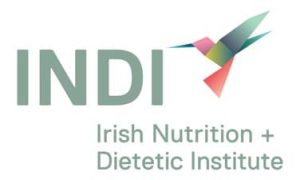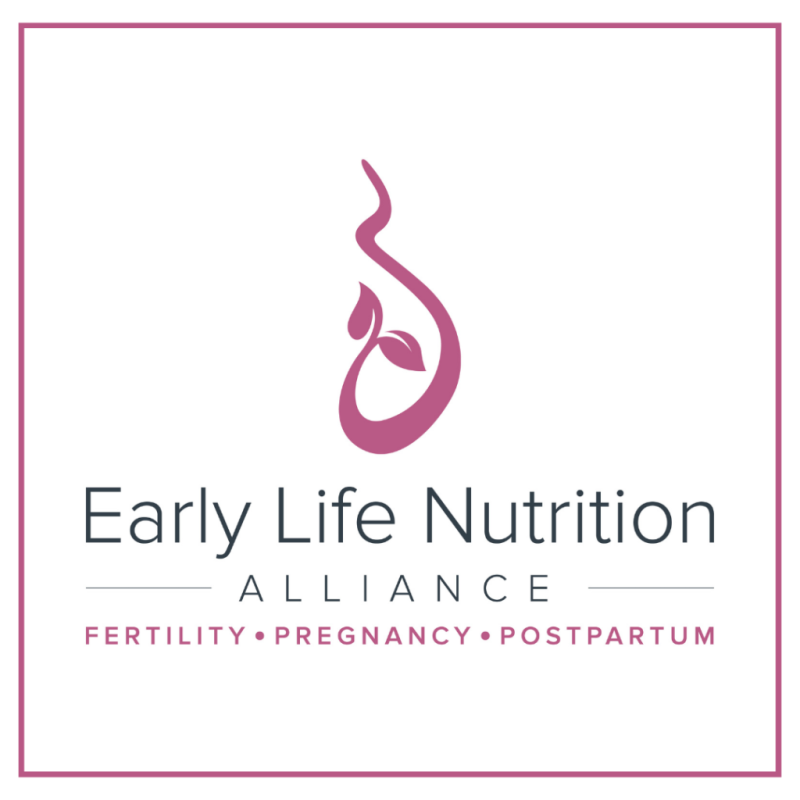Should I be Following a plant-based diet to optimise my fertility?
A plant-based diet is based on foods that come from plants with few or no ingredients that come from animals. This includes vegetables, wholegrains, legumes, nuts, seeds and fruits (BDA, 2021). They do not totally restrict but limit consumption of poultry, beef, eggs or fish (unlike a traditional vegan or vegetarian diet which restricts total consumption).
Plant-based diets are on the rise for many reasons! Sustainability being one of the first ones that comes to mind, however, many people are adopting this dietary pattern as it is associated with many positive health outcomes. As such, you might find yourself wondering if transitioning to a plant-based diet is a good option for you embarking on your fertility journey. Firstly it is important to highlight that with vegetarian or vegan diets, it is more challenging to get adequate amounts of the nutrients you need. If you do decide to follow a stricter plant based diet, it is imperative to put some extra time to plan your diet. This is because plant-based sources of certain nutrients aren’t as bioavailable (meaning the body doesn’t absorb them as easily). This can be challenging to do alone (even with a good understanding of nutrition). As well as planning your diet, you may need to commence some essential supplementation to ensure you are meeting your requirements that cannot be provided via a vegan diet. It is always beneficial to get some professional advice on this from a registered dietitian or nutritionist who can provide you with individualised nutritional and supplementation advice.

Despite us having lots of good quality research to show the benefits of plant based diets in many health scenarios such as in certain cancers, cardiovascular disease and type 2 diabetes, little to no research has examined its exact effects on fertility outcomes. Of the research which is available, it appears that the best approach may be to increase your consumption of plant-based foods as opposed to adopting a whole plant based dietary approach. Why? – Let’s talk about some of the evidence we do have. Research to date has demonstrated that:
- Replacing some animal protein with plant proteins may help against ovulatory infertility (Chavarro et al. 2008)
- Low intakes of plant proteins may disturb normal ovulatory function (Kim et al. 2021)
- Increasing plant-based sources of iron may lower the risk of infertility (Chavarro et al. 2006)
- Consumption of soya may positively affect endocrine diseases such as PCOS, as well as improve endometrial thickness and pregnancy rate (Rizzo et al. 2022, Messina 2022)
- Diets with higher intakes of vegetable proteins, full-fat dairy foods, iron, and more healthy fats (such as monounsaturated fats) may be associated with lower risk of infertility (Gaskins et al. 2018)
- The Mediterranean-style diet which is characterised by higher intakes of vegetables, fruit, fish, poultry, low fat dairy and olive oil is associated with an increased probability of getting pregnant following IVF (Gaskins et al. 2018)
When it comes to preconception nutrition, we must consider all of the many important nutrients needed to boost both female and male fertility as well as ensure that the body has sufficient stores to fuel pregnancy. Some of these important nutrients include protein, omega-3 fatty acids, iron, calcium, zinc, selenium, choline and many more. As mentioned, the richest sources and most bioavailable sources of these, are in fact animal sources such as meat, fish, eggs and dairy products! For this reason, coupled with the fact that little is known about the role of plant-based diets in fertility, our advice is to simply increase your consumption of plant-based foods alongside regular consumption of meat, fish, eggs and dairy products.
Here are some of our top tips for boosting your plant food intake:
- Add a tin of chickpeas to your chicken curry, kidney beans to chilli con carne, lentils to your bolognese or mixed beans to salads (these are all great sources of plant proteins as well as iron and fibre)
- Snack on mixed nuts & seeds to tick a lot off a few of our fertility friendly nutrients such as selenium, zinc, omega-3, iron and plant proteins
- Use silken tofu as a substitute for heavy cream
- Grate carrots or courgette into pasta sauces such as bolognese or meatballs
- Arm your freezer with frozen vegetables, these are often higher in nutrients because they are frozen fresh! This means you always have some in the house to add to any meals.
If you are considering changing your diet, talking to a fertility dietitian can help to guide and support you. Interested in learning more about how a fertility dietitian can support you?
Contact Jess to schedule a discovery call.
By Lorna Haydon BSc (Hons) & Jess Willow, RD & CIEC
References:
British Dietetic Association (2021). Vegetarian, Vegan and Plant-Based Food fact sheet. Accessed online: <https://www.bda.uk.com/resource/vegetarian-vegan-plant-based-diet.html> (Feb 2023)
Chavarro JE, Rich-Edwards JW, Rosner BA, Willett WC. Iron intake and risk of ovulatory infertility. Obstetrics & Gynecology. 2006 Nov 1;108(5):1145-52.
Chavarro, J.E., Rich-Edwards, J.W., Rosner, B.A. and Willett, W.C., 2008. Protein intake and ovulatory infertility. American journal of obstetrics and gynecology, 198(2), pp.210-e1.
Gaskins, A.J. and Chavarro, J.E., 2018. Diet and fertility: a review. American journal of obstetrics and gynecology, 218(4), pp.379-389.
Kim, K., Yisahak, S.F., Nobles, C.J., Andriessen, V.C., DeVilbiss, E.A., Sjaarda, L.A., Alohali, A., Perkins, N.J. and Mumford, S.L., 2021. Low intake of vegetable protein is associated with altered ovulatory function among healthy women of reproductive age. The Journal of Clinical Endocrinology & Metabolism, 106(7), pp.e2600-e2612.
Messina, M., Mejia, S.B., Cassidy, A., Duncan, A., Kurzer, M., Nagato, C., Ronis, M., Rowland, I., Sievenpiper, J. and Barnes, S., 2022. Neither soyfoods nor isoflavones warrant classification as endocrine disruptors: a technical review of the observational and clinical data. Critical Reviews in Food Science and Nutrition, 62(21), pp.5824-5885.
Rizzo, G., Feraco, A., Storz, M.A. and Lombardo, M., 2022. The role of soy and soy isoflavones on women’s fertility and related outcomes: an update. Journal of Nutritional Science, 11, p.e17.









